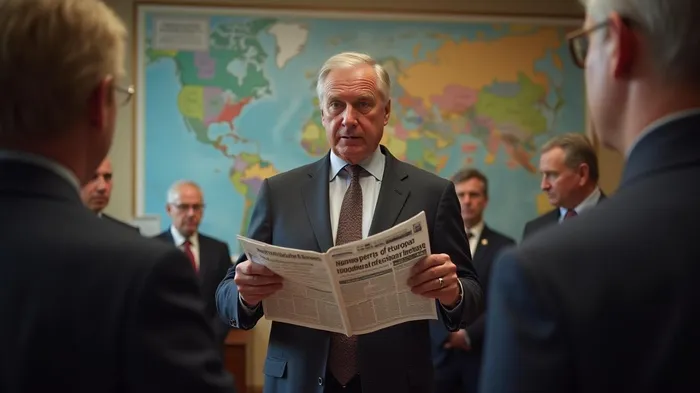USTR Criticizes Europe's Tariff Negotiation Stance, Warns of Unilateral Action
The Office of the United States Trade Representative (USTR) has expressed dissatisfaction with Europe's approach to tariff negotiations. According to the USTR, Europe has not engaged constructively in the ongoing discussions, which has led to a stalemate in the negotiations. This lack of engagement has raised concerns about the potential for further escalation in trade tensions between the two regions.
The USTR's statement highlights the importance of constructive dialogue in resolving trade disputes. The office has emphasized the need for Europe to take a more proactive role in the negotiations, in order to find a mutually beneficial solution. The USTR has also expressed its willingness to continue the dialogue, but has warned that it will not hesitate to take unilateral action if necessary.
This development comes at a time when trade relations between the United States and Europe are already strained. The two regions have been locked in a series of disputes over issues such as steel and aluminum tariffs, as well as aircraft subsidies. The lack of progress in the tariff negotiations is likely to further exacerbate these tensions, and could have significant implications for the global economy.
The USTR's statement has been met with criticism from some quarters, who argue that the United States is being too aggressive in its approach to trade negotiations. However, others have praised the USTR for standing up for American interests, and for refusing to back down in the face of European intransigence. The outcome of the negotiations remains uncertain, but it is clear that both sides will need to make significant concessions if a resolution is to be reached.
Analysts have noted that the lack of progress in the tariff negotiations could have serious consequences for both the United States and Europe. The two regions are major trading partners, and any disruption to their trade relationship could have ripple effects throughout the global economy. It is therefore in the interests of both sides to find a way to resolve their differences and move forward with a constructive dialogue.

Quickly understand the history and background of various well-known coins
Latest Articles
Stay ahead of the market.
Get curated U.S. market news, insights and key dates delivered to your inbox.



Comments
No comments yet